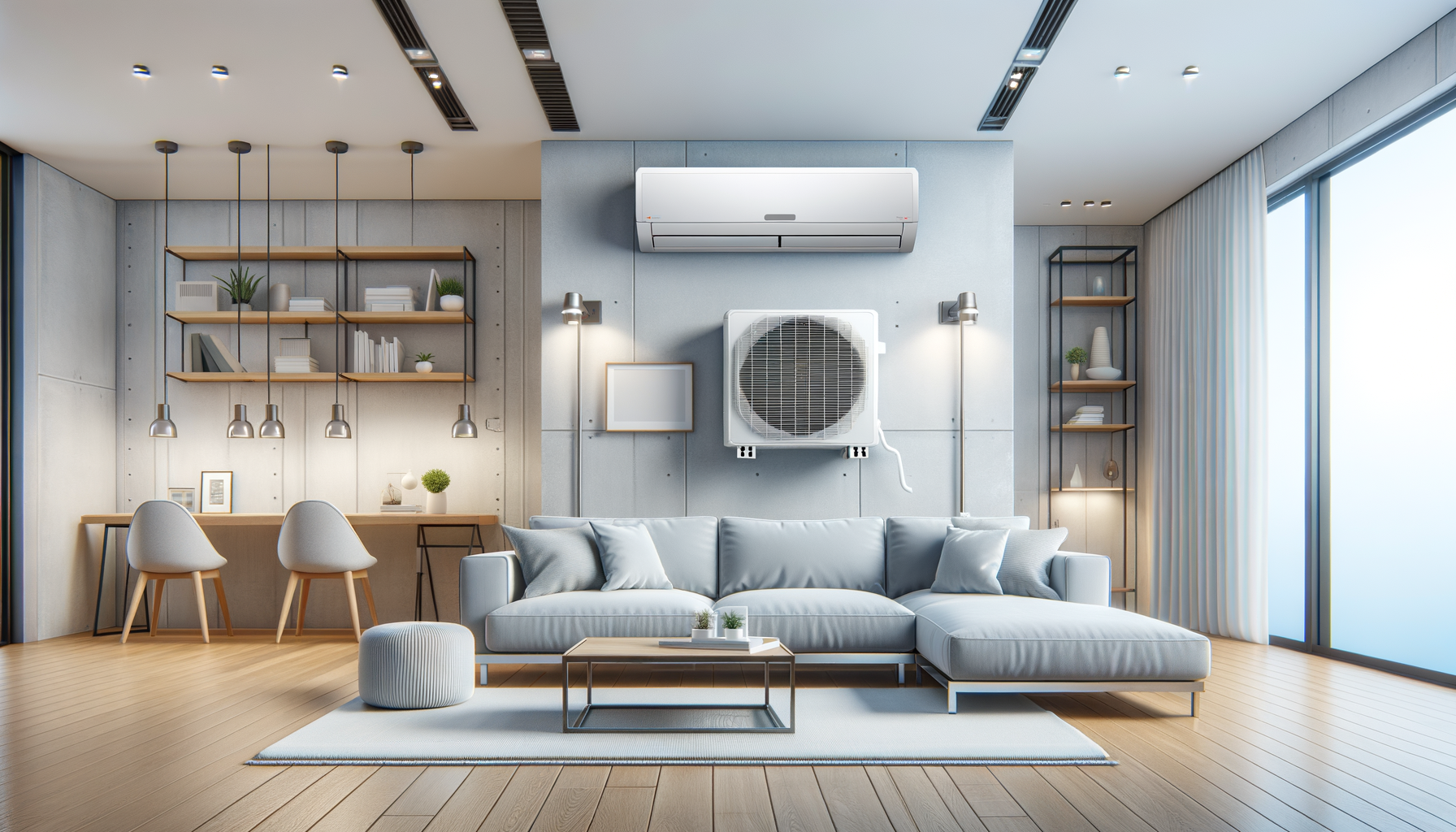Understanding Ductless Air Conditioning Systems
Ductless air conditioning systems, also known as mini-split systems, are becoming increasingly popular as an alternative to traditional air conditioning solutions. These systems are designed to provide targeted cooling without the need for extensive ductwork, making them an ideal choice for homes without existing duct systems or for add-ons where extending ductwork isn’t feasible. The system consists of an outdoor compressor and one or more indoor units, which are connected by refrigerant lines. This setup allows for a more flexible installation process.
One of the primary advantages of ductless systems is their energy efficiency. Traditional central air conditioning systems can lose up to 30% of energy through ductwork, especially if the ducts are not properly sealed or insulated. By eliminating ducts, ductless systems can deliver air directly to different zones, reducing energy waste and allowing for more precise temperature control.
Moreover, ductless systems are known for their quiet operation. Unlike window units or central systems that can be quite noisy, ductless systems operate with minimal sound, making them suitable for bedrooms and living areas where noise can be a disturbance. Additionally, many models come with advanced filtration systems that improve indoor air quality by removing dust, pollen, and other allergens.
Choosing the Right HVAC Replacement Company
When it comes to replacing an HVAC system, selecting the right company is crucial to ensure a smooth process and optimal results. There are several factors to consider when choosing an HVAC replacement company near you. First, look for companies with a strong reputation and positive customer reviews. This can often be an indicator of their reliability and quality of service.
It’s also important to verify the company’s credentials. Make sure they are licensed, insured, and certified by recognized industry organizations. This not only ensures that they meet industry standards but also provides peace of mind knowing that your system is in capable hands. Additionally, inquire about their experience with ductless systems if that’s your preferred choice, as specialized knowledge can make a significant difference in the installation process.
Another critical aspect is the company’s customer service and support. A reputable HVAC company should offer comprehensive support, from the initial consultation to post-installation services. This includes offering maintenance plans and being available for any questions or concerns that may arise. Lastly, obtain multiple quotes to compare pricing and ensure you’re getting a fair deal. Remember, the cheapest option isn’t always the best; consider the value and quality of service offered.
Exploring Air Conditioning Companies
Air conditioning companies offer a range of products and services, from installation and maintenance to repair and replacement. When exploring air conditioning companies, it’s essential to understand the variety of services they provide and how they can meet your specific needs. Some companies specialize in certain types of systems, such as ductless or central air, while others offer a broader range of options.
Many air conditioning companies also provide energy audits to help homeowners understand their energy usage and identify opportunities for efficiency improvements. These audits can be particularly beneficial for those looking to reduce their energy bills and environmental impact. Additionally, companies may offer financing options to make the investment in a new system more manageable.
When evaluating air conditioning companies, consider their experience and expertise in the field. A company with a long-standing presence in the industry is likely to have a wealth of knowledge and a track record of successful installations. Furthermore, check if they offer warranties or guarantees on their work, as this can provide added assurance of their commitment to quality and customer satisfaction.
Benefits of Ductless Systems Over Traditional HVAC
Ductless systems offer several benefits over traditional HVAC systems, making them an attractive option for many homeowners. One of the most significant advantages is their flexibility in installation. Because they don’t require ductwork, ductless systems can be installed in a variety of settings, including older homes, room additions, and buildings where ductwork is impractical.
These systems also provide zoned cooling, allowing different areas of a home to be cooled independently. This feature not only enhances comfort but also promotes energy savings, as you can cool only the areas that are in use. Additionally, ductless systems are known for their energy efficiency, often achieving higher SEER ratings than traditional systems, which can lead to lower utility bills.
Another benefit is the improved air quality that ductless systems can offer. With advanced filtration options, these systems can capture and reduce allergens, dust, and other pollutants, resulting in cleaner indoor air. This can be particularly beneficial for individuals with allergies or respiratory issues. Furthermore, the absence of ducts means there’s less opportunity for dust and debris to accumulate and circulate throughout the home.
How to Maintain Your Ductless Air Conditioning System
Proper maintenance of a ductless air conditioning system is essential to ensure its longevity and efficiency. Regular maintenance can help prevent potential issues and ensure the system operates at peak performance. One of the simplest maintenance tasks is cleaning or replacing the filters regularly. Clean filters improve air quality and system efficiency by allowing for better airflow.
It’s also important to keep the outdoor unit free from debris and obstructions. Leaves, dirt, and other debris can accumulate around the unit, hindering its performance. Regularly inspecting and cleaning the area around the outdoor unit can help maintain optimal airflow and efficiency.
Scheduling professional maintenance at least once a year is also recommended. A professional technician can inspect the system for any potential issues, clean the coils, check refrigerant levels, and ensure all components are functioning correctly. This proactive approach can help identify and address minor issues before they become major problems, extending the life of your system and maintaining its efficiency.
Lastly, be attentive to any unusual noises or performance issues, as these can be early indicators of a problem. Addressing these issues promptly can prevent more significant damage and costly repairs down the line.




Leave a Reply